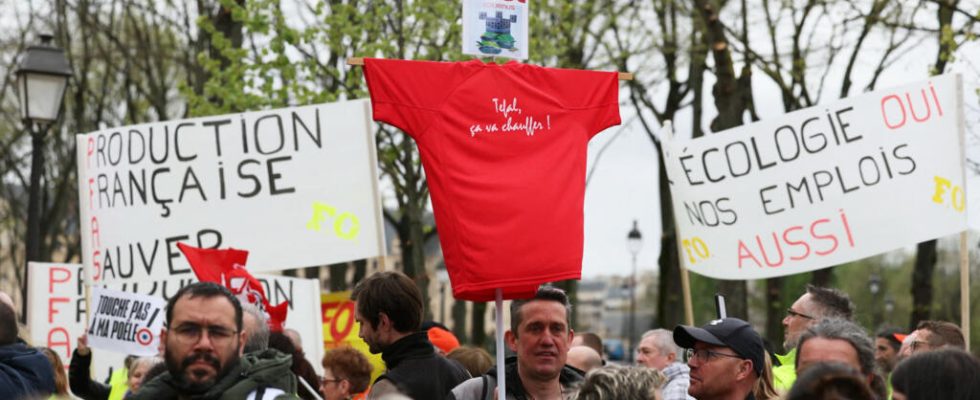The National Assembly adopted at first reading, Thursday April 4, a bill restricting the production and sale of PFAS, also called “eternal pollutants”. For associations, this is a good signal sent, despite some drawbacks in the text. This is a first step towards their ban in France.
2 mins
In France, the bill to restrict the manufacturing and sale containing PFAS was passed unanimously with 186 votes in favor and zero against. These “eternal pollutants” are found in many everyday objects, such as textiles, food packaging and also kitchen utensils. The latter were, however, removed from the scope of the law, following intense pressure from industrialists in the sector. For associations, this is a downside in favor of this ban. But they nevertheless prefer to see the glass half full.
A first step
“ It was a first step essential which sends an important message at the European level too, because there are proposed restrictions for the use of PFAS at the European level. The decision of the French National Assembly will send another message after the positions taken by states such as Germany, Denmark, the Netherlands, etc., which are in favor of this restriction for PFAS, at the European level. So it will also help at the community level. All of this is indeed generally positive. », Retains François Veillerete, spokesperson for Générations futures.
The text must now make the parliamentary shuttle to the Senate. It is only at the end of this legislative process that the manufacture, import and sale of any cosmetic product or clothing containing PFAS will be prohibited in France, on January 1, 2026.
This is a historic first victory. Above all, I think that there is now a dynamic around “eternal pollutants” which will not stop. In particular, we have a certain number of lobbies which were, a year ago, almost untouchable and which are now on the defensive. I think the pressure has shifted. This is what we must remember. We won on everything that was planned, apart from the kitchen utensils. There was a fairly crude lobby, it must be said, from certain industrialists, in particular from the SEB group, we can name them, who actually put a lot of pressure, disseminated information which was scientific, which was erroneous and which were blackmailed for employment. And unfortunately, there are a number of MPs who have been permeable to these arguments. So in fact, we lost on kitchen utensils. But on the other hand, we have made very concrete progress. For the first time, we put the polluter pays principle into law. Manufacturers will participate in the depollution of drinking water in France and that is truly historic.
A first “victory” despite pressure, according to environmentalist deputy Nicolas Thierry
Read alsoHow have PFAS, “eternal pollutants”, contaminated the world?
ANSES confirms contamination of Nestlé mineral waters
In France, revelations continue to follow concerning mineral waters marketed by Nestlé. A new document from the National Agency for Food, Environmental and Occupational Health Safety (ANSES) confirms the contamination of the Swiss group’s natural mineral water sources. According to our colleagues at World and of FranceinfoNestlé did indeed use prohibited purification treatments.
The observation is very clear: “ A level of confidence is insufficient to guarantee the health quality of Nestlé’s finished products “. Submitted to the government last October, the ANSES report points to the presence of chemical contaminants in the water assessed. The famous PFAS, these so-called “eternal” pollutants, are also present and can sometimes exceed the regulatory threshold. Pesticides, bacteria of fecal origin and even micropollutants complete the list.
The brands concerned? Hépar, Vittel, Contrex, but also Perrier. For experts, all these non-compliances should not lead to the production of bottled water. Following the publication of the report, the Nestlé CGT requested an extraordinary meeting of the social and economic council of the Swiss group, in order to obtain explanations from management as quickly as possible.
